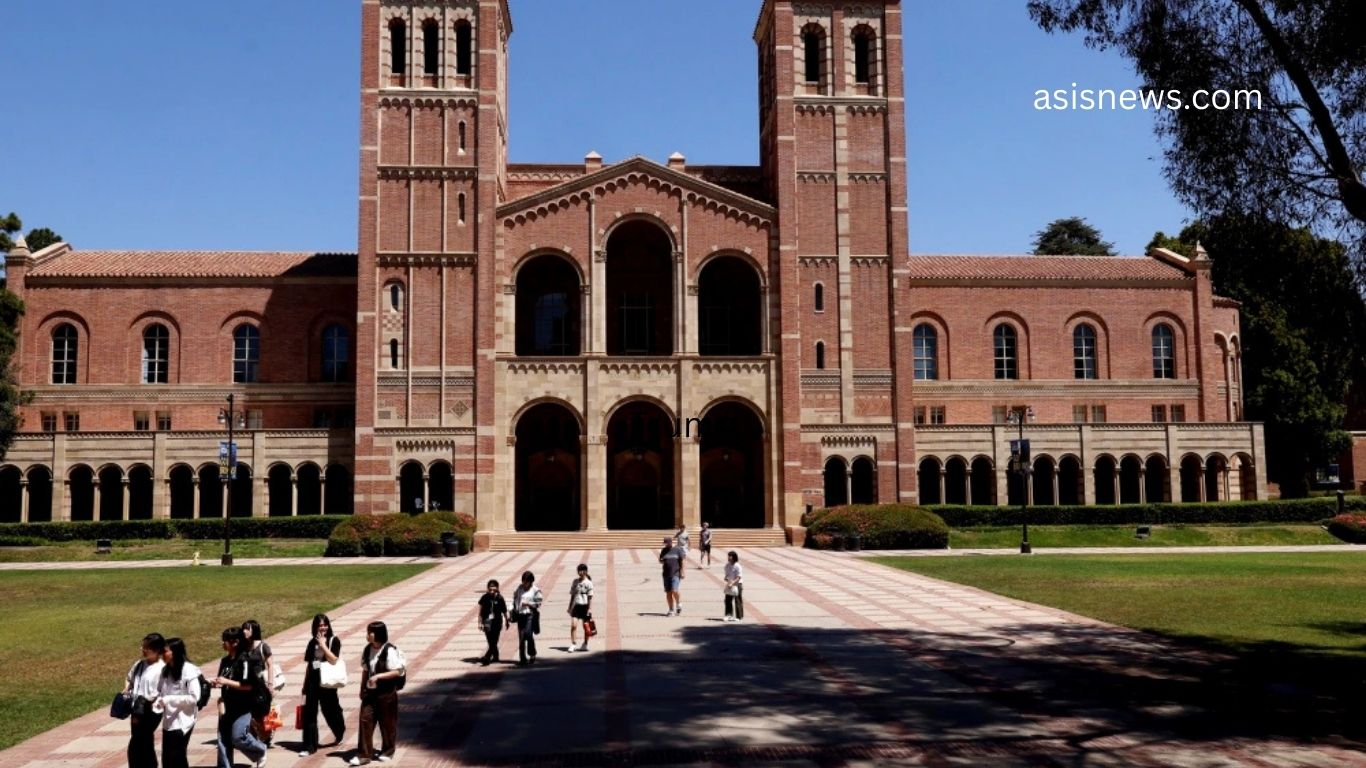A federal judge has dealt a significant legal blow to the Trump administration, ordering the partial restoration of research grants to the University of California, Los Angeles (UCLA). The decision comes amid an ongoing class action lawsuit challenging the administration’s controversial suspension of federal science funding to the University of California (UC) system.
Read More: Oklahoma’s teacher ideology test targeting applicants from New York and California sparks backlash
Judge Rules Against Trump Administration
On Tuesday night, U.S. District Judge Rita Lin ruled that the Trump administration must reinstate suspended grants to UCLA. The order follows a heated legal battle in which researchers accused federal officials of unlawfully terminating or suspending grants essential for ongoing research.
Lin specifically directed the National Science Foundation (NSF) to comply with her earlier injunction, which prohibited the arbitrary termination of science funding. She also gave the Trump administration one week to demonstrate compliance.
In her ruling, Judge Lin criticized the administration’s attempt to label the cuts as “suspensions” rather than “terminations.” According to Lin, this wordplay had the same effect of halting critical funding and violated the court’s earlier injunction.
Background on the Funding Freeze
The dispute began when the Trump administration froze approximately $584 million in federal grants to UCLA earlier this year. Roughly one-third of those grants originated from the National Science Foundation. Officials argued that UCLA had inadequately addressed antisemitism on campus, which they claimed violated federal civil rights laws.
The funding freeze quickly sparked outrage within the UC system and the broader research community. Critics accused the administration of using political pressure and civil rights concerns as a pretext to cut off resources for scientific projects unrelated to the allegations.
Judge Lin reaffirmed that the funding suspension contradicted her June injunction, which barred federal agencies from terminating research grants without due process.
University of California Responds
In a statement to NBC News, the University of California expressed cautious optimism about the decision.
“While we have not yet had an opportunity to review the court’s order and were not party to the suit, restoration of National Science Foundation funds is critical to the research the University of California performs on behalf of California and the nation,” the university said.
The White House has yet to respond publicly to the ruling.
Scope of the Impact
According to Grant Witness, a project run by researchers and volunteers tracking science funding under the Trump administration, the suspended NSF funding at UCLA affects 306 projects worth more than $101 million. These projects span a wide range of fields, from climate science to medical research, and employ hundreds of researchers, graduate students, and staff.
Had the suspension remained in place, many projects would have been forced to shut down prematurely, wasting years of taxpayer investment and undermining the nation’s research infrastructure.
Allegations Against UCLA
The Trump administration justified its funding freeze by alleging that UCLA had acted with “deliberate indifference in creating a hostile educational environment for Jewish and Israeli students.” Federal officials argued that the university’s failure to address antisemitism violated civil rights protections.
As a condition for restoring funding, the administration recently proposed a $1 billion settlement with UCLA. Critics described this as an unprecedented demand that blurred the line between campus disciplinary matters and federal research policy.
Judge Lin, however, rejected the notion that withholding science grants was an appropriate remedy for the administration’s concerns. She emphasized that the suspension undermined legitimate research unrelated to the allegations and violated administrative law.
Legal Arguments in Court
During Tuesday’s hearing, government lawyers maintained that UCLA’s funding had been “suspended,” not “terminated.” They argued that suspensions allowed for reinstatement if the university improved its compliance with federal civil rights law.
Judge Lin dismissed this reasoning, writing that the distinction between suspension and termination was immaterial when both actions halted funding.
“NSF claims that it could simply turn around the day after the Preliminary Injunction issued, and halt funding on every grant that had been ordered reinstated, so long as that action was labeled as a ‘suspension’ rather than a ‘termination,’” Lin wrote. “This is not a reasonable interpretation of the scope of the Preliminary Injunction.”
Her ruling clarified that federal agencies cannot bypass court orders through semantic loopholes.
Class Action Lawsuit Details
The class action lawsuit, filed in June, alleges that the Trump administration violated administrative law by mass suspending or terminating federal research grants without individual review. Plaintiffs argue that the cuts were politically motivated and lacked scientific or legal justification.
The lawsuit highlights that many terminated grants contained terms such as “equity” or “diversity” in their titles—keywords reportedly flagged by the administration’s Department of Government Efficiency, a newly formed office overseen by Elon Musk. Critics argue that the office has used ideological criteria to evaluate funding, undermining academic freedom and research integrity.
Voices From the Academic Community
Claudia Polsky, a UC Berkeley law professor and lead attorney in the lawsuit, applauded the ruling.
“Judge Lin readily understood that the suspension actions, like the prior terminations she had enjoined, unlawfully failed to contain grant-specific rationales for halting grants mid-stream,” Polsky said. “NSF nowhere considered researchers’ reliance on the grants, nor the waste of public money from abandoning research prior to completion.”
Faculty and researchers across the UC system have echoed this sentiment, emphasizing that abrupt funding suspensions destabilize scientific progress and threaten the careers of young scholars who depend on federal grants.
Broader Implications
This case carries far-reaching consequences beyond UCLA. Federal science funding underpins thousands of research projects nationwide, many of which are already facing heightened scrutiny. If grant suspensions are allowed without clear justification, researchers warn, it could set a dangerous precedent where political disagreements dictate which scientific inquiries receive support.
Moreover, the lawsuit raises concerns about academic freedom and the potential misuse of civil rights enforcement. While combating antisemitism and discrimination remains vital, critics argue that withholding research funding is a blunt instrument that harms the broader scientific enterprise without addressing underlying issues.
Frequently Asked Questions:
What was the court ruling about UCLA funding?
A federal judge ordered the Trump administration to partially restore research grants to UCLA after suspending them earlier this year.
Why were UCLA’s research grants suspended?
The Trump administration froze more than $584 million in funding, claiming UCLA failed to properly address antisemitism on campus.
How much funding is affected by this decision?
The National Science Foundation (NSF) grants alone account for over $101 million across 306 projects at UCLA.
Who made the ruling?
U.S. District Judge Rita Lin issued the decision, stating that suspensions had the same unlawful effect as terminations.
What does the class action lawsuit claim?
The lawsuit argues that the administration unlawfully suspended or terminated grants without proper review, violating administrative law.
How has UCLA responded?
The University of California system welcomed the ruling, stressing that NSF funding is critical to research that benefits both California and the nation.
What was the proposed $1 billion settlement about?
The Trump administration suggested restoring funding only if UCLA agreed to a $1 billion settlement over alleged civil rights violations.
Conclusion
The federal court’s decision to order the Trump administration to restore part of UCLA’s suspended funding highlights the critical role of judicial oversight in protecting academic research from political influence. By reaffirming that grant suspensions cannot be used as a loophole to bypass court injunctions, Judge Rita Lin’s ruling safeguards not only UCLA’s ongoing projects but also the integrity of federally funded science across the nation.

